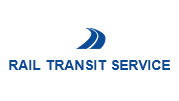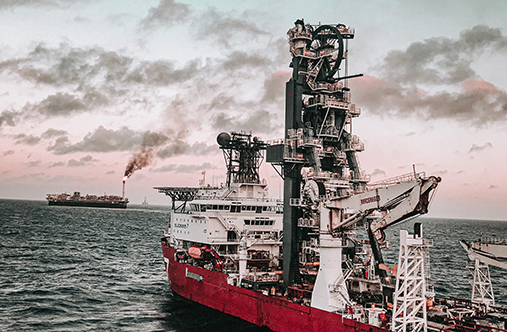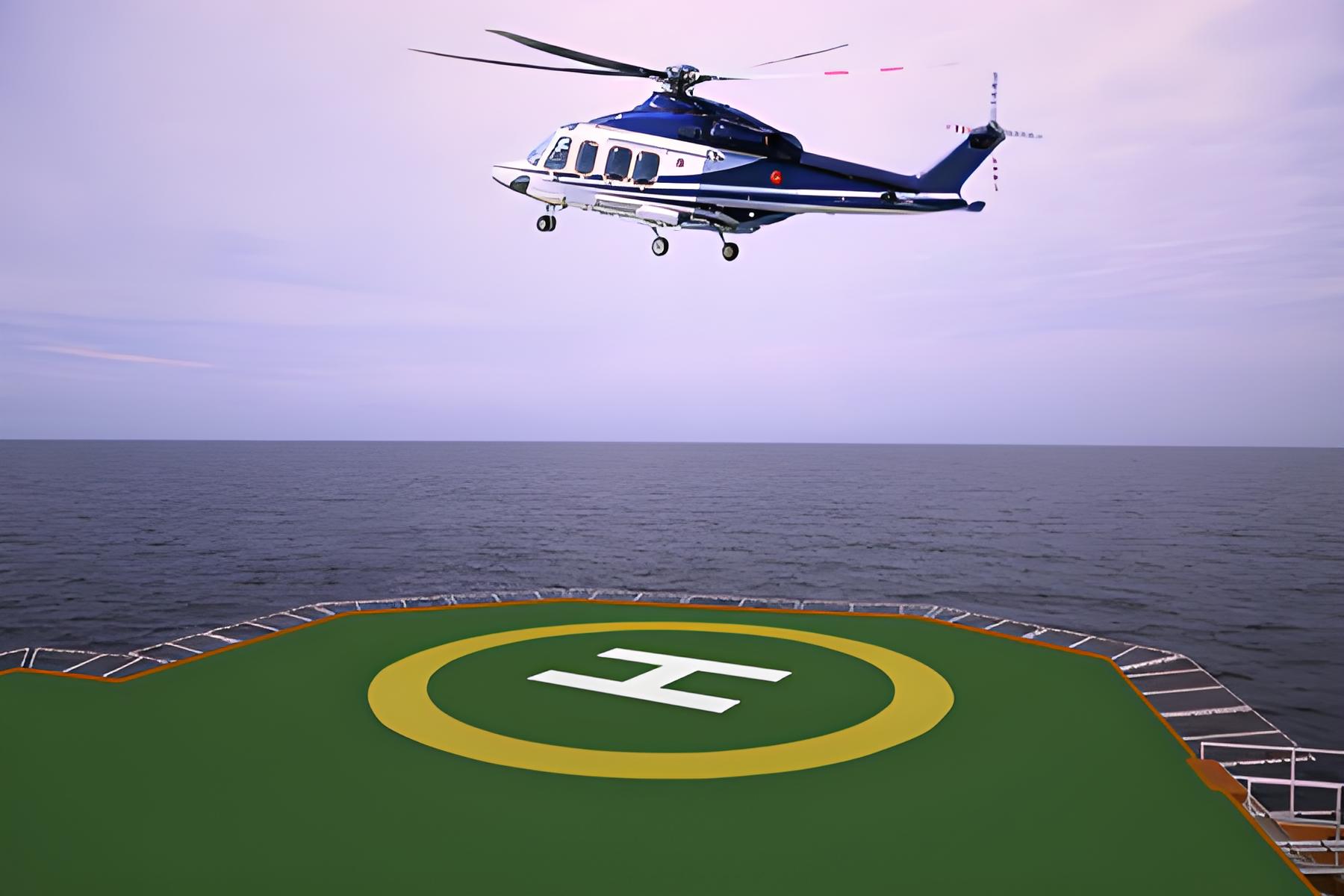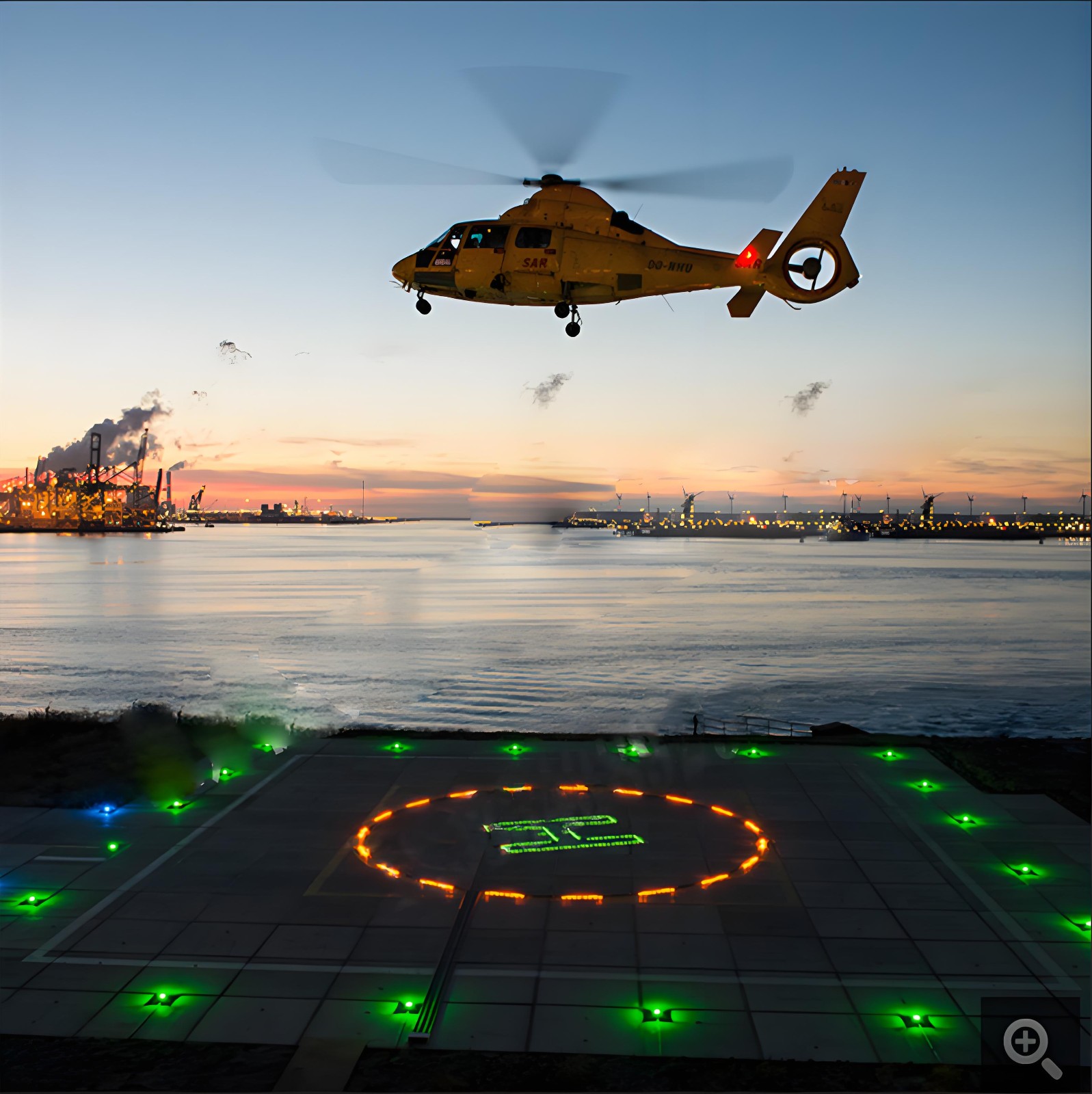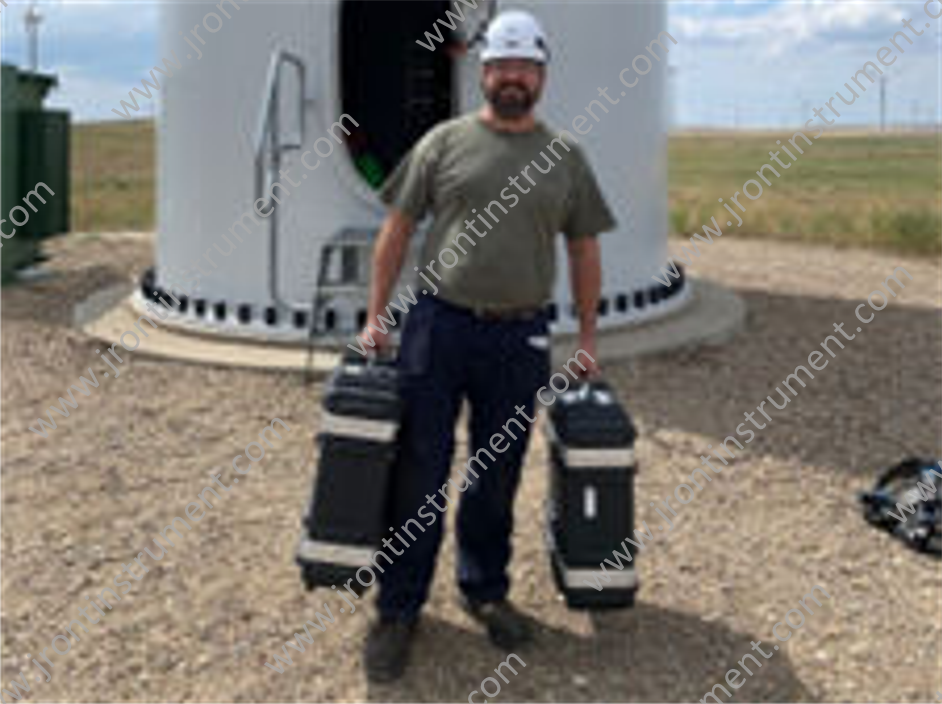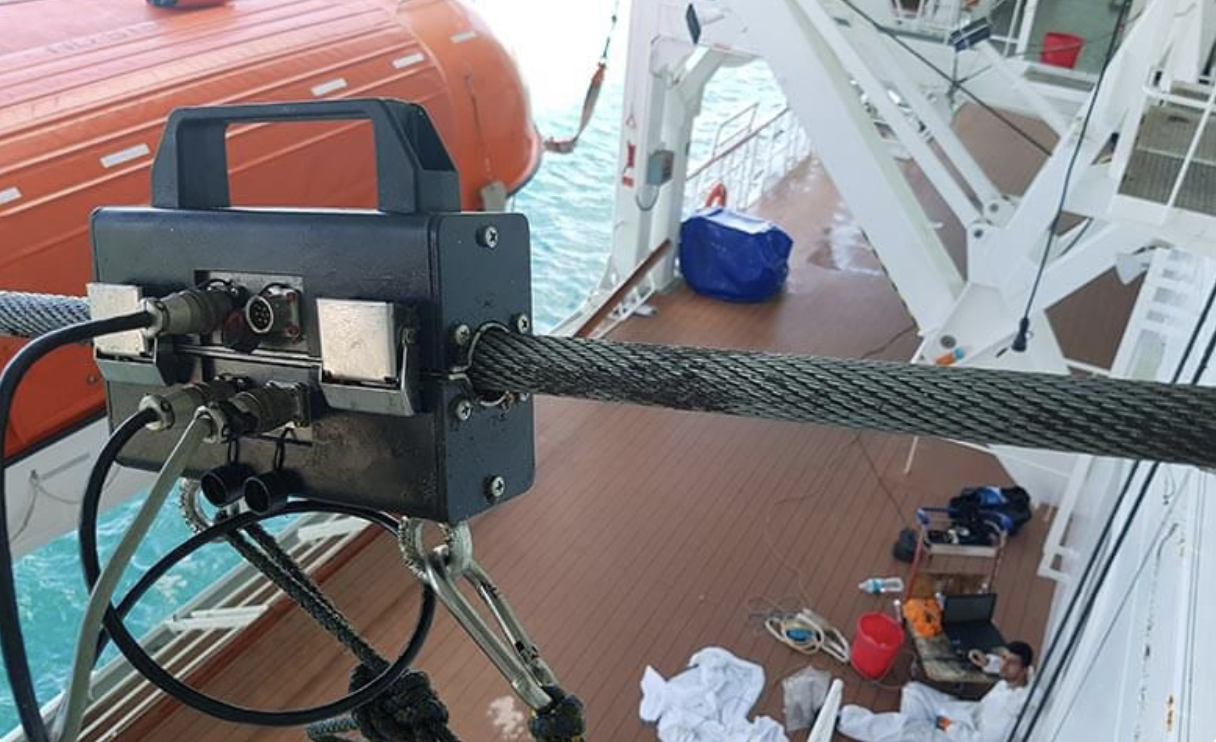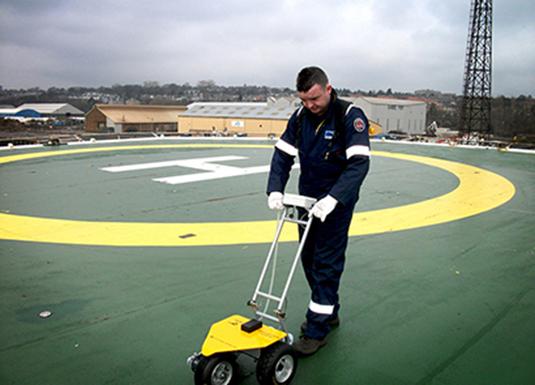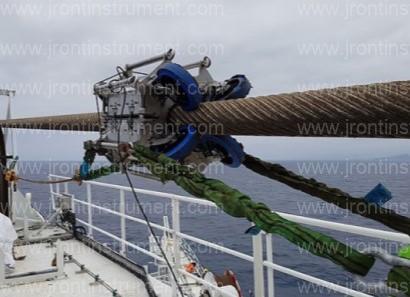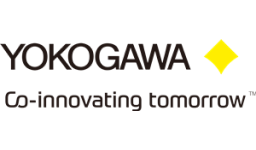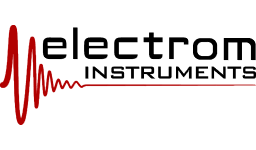
HMS - Helideck Monitoring System Specification Assessment Services
The Helicopter Deck Monitoring System (HMS) is designed to measure all weather conditions during helicopter landing and take-off operations, thereby enhancing flight safety.
The HMS can interface with a variety of weather sensors, including wind speed, wind direction, QFE/QNH barometric pressure, temperature, and humidity.
The system complies with the relevant requirements of the International Helicopter Certification Authority (HCA).
A standard HMS configuration requires the following parameters:
* Wind speed and direction * Temperature / humidity * Dew point * Atmospheric pressure * Visibility * Present weather / cloud height * Motion (for floating drilling units or vessels) |
|
For further information or inquiries, please feel free to contact us at any time
Helicopter Deck Lighting Inspection
Helicopter deck navigation lighting inspection covers the following aspects:
| 1. Photometry The luminous-intensity distribution of each luminaire shall comply with the Technical Requirements for Civil Heliport Lighting Equipment. Test reference: Clause 5.2.1 of the above standard. 2. Chromaticity At full intensity the emitted color shall meet the requirements of Appendix I to MH 5001, with chromaticity coordinates within the limits specified in the Technical Requirements for Civil Heliport Lighting Equipment. For HAPI red, the y-coordinate shall not exceed 0.320. Test reference: Clause 5.2.3 of the above standard. 3. Inset Luminaire Tests Unless otherwise stated, tests on inset heliport luminaires shall be carried out in a mounting configuration that simulates actual installation. Luminaire dimensions shall satisfy the Technical Requirements for Civil Heliport Lighting Equipment. Test reference: Clause 5.3.1 of the above standard. |
For further information or inquiries, please feel free to contact us at any time
Helicopter Deck Surface Friction-Coefficient Testing & Assessment Service
Helicopter Deck Surface Friction-Coefficient Testing & Assessment Service
To verify that the surface friction coefficient of your helicopter deck meets the requirements of both the CAAC Advisory Circular AC-135-FS-011 (Heliport Over-Water Operations) and the UK CAA offshore helicopter landing-area standard CAP 437, we conduct professional friction-coefficient testing and evaluation using the Findlay Irvine Micro-Grip friction tester from the United Kingdom.
The CAP 437 standard is adopted worldwide. It is mandatory on the UK Continental Shelf (UKCS) and referenced by numerous other national authorities.
All tests are performed by certified technicians, ensuring accurate and reliable data that provides authoritative technical support and documentation for regulatory compliance.
Inspection & Associated Services We Provide:
* Operators and IOGP members are obliged to ensure that their offshore helidecks are inspected and certified in accordance with local aviation-authority requirements or, where not specified, ICAO Annex 14 and CAP 437. We therefore deliver semi-annual deck inspections and an annual friction test to satisfy this mandate.
* Helideck inspections, safety-net inspections, refuelling-system checks and a full range of CAP 437 compliant test reports.
* Rental of Micro-Grip friction test buggies and sales of related equipment and instrumentation.

Service Advantages:
* In-depth knowledge of ICAO and local-authority requirements.
* Active involvement in safety issues, especially flight-safety quality.
* CAP 437 compliant testing with detailed, third-party-recognised reports.
* Exclusive agency for the test equipment, which is regularly maintained and calibrated.
* Internationally certified service team with more than 30 years of industry experience.
* Choosing our friction-testing service ensures the safety of your helicopter deck and personnel.
For further information or inquiries, please feel free to contact us at any time
Helicopter-Platform Safety Net Testing & Certification Service
JRONT provides helicopter-platform safety-net inspection and testing services in full compliance with CAP 437, OGUK and DNV global helideck standards.
The safety-net’s upper edge must not exceed the elevation of the safety area or any obstacle-limitation surface. The net shall be installed at least 15 m above the water and be capable of sustaining a minimum load of 122 kg/m². Its design must ensure that any person or object falling onto the net is not ejected outside the netted area.
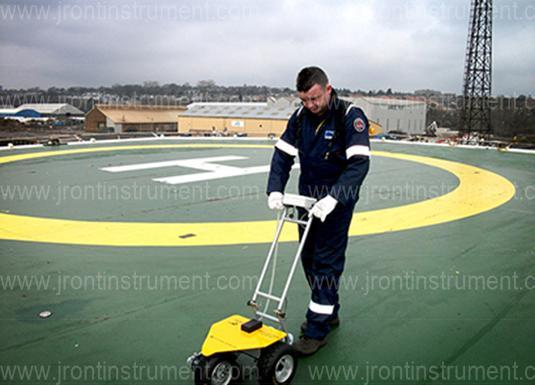
Technical requirements for helicopter-landing-area safety nets:
* A safety net system shall consist of the net panel, supporting framework, manual operating gear and securing devices.
* Mesh openings shall not exceed 90 mm × 90 mm; 50 mm × 50 mm is recommended.
* The net material is nylon. Each panel is bordered by stainless-steel round bar (SUS316) and fixed to the frame with stainless-steel cable ties (SUS316) at typical 150 mm intervals.
* For the prototype test, the safety net shall be set up horizontally onshore; on board, it shall be tested in the stowed position.
* Test load: 450 kg applied for 10 minutes. After the test there shall be no permanent deformation or structural damage. The load centre shall be located at two-thirds of the net height from the attachment point, applied over an area of approximately 0.3 m × 1.0 m.
For further information or inquiries, please feel free to contact us at any time
Helicopter-Platform Refuelling System Inspection & Testing
JRONT's helicopter-platform refuelling-system inspections are executed strictly in accordance with CAP 437 and fully comply with the P.R.C. Maritime Safety Administration Technical Regulations for Mobile Offshore Units (MSA Notice No. 4 of 2023).
Service Advantages:
* In-depth knowledge of ICAO standards and local regulatory requirements.
* Aviation-qualified personnel committed to client safety and operational integrity.
* Decades of proven inspection and testing experience worldwide.
For further information or inquiries, please feel free to contact us at any time
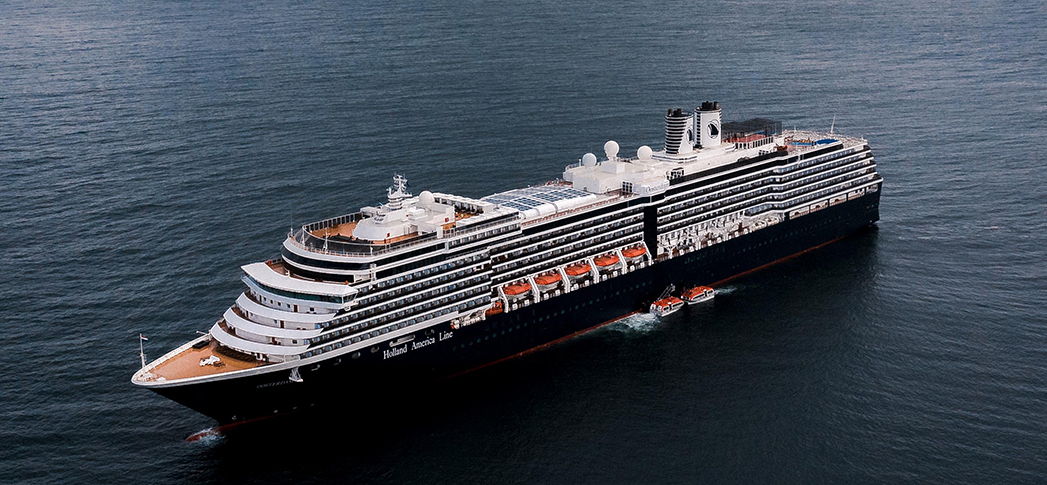
Ship generator testing services
Marine Generator Testing Service
Marine generator sets are critical to every vessel; if the generator fails, the ship cannot sail. Stator and rotor windings age, absorb moisture, overheat, corrode, suffer intrusion or mechanical shock, and are stressed by overload, under-voltage, over-voltage or phase imbalance—all of which can trigger faults.
Motor and generator failures can occur without warning. JRONT’s certified technicians provide shipboard generator testing that enables maintenance professionals to make intelligent, data-driven decisions on in-service machines and to detect insulation weaknesses before they become catastrophic.
Our Motor & Generator Testing Services * Surge (impulse) and inter-turn tests per IEEE 522 * Partial-discharge tests per IEC 61934-15:2009 (3.0) |
|
For further information or inquiries, please feel free to contact us at any time | |
Wire-Rope Non-Destructive Testing (NDT) Service
In harsh offshore environments, service safety and continuity are non-negotiable. Our NDT wire-rope inspection equipment is engineered for marine duty and can scan large-diameter ropes at high speed. JRONT detects both internal and external defects—wire breaks, corrosion, wear, and fretting fatigue—before they become critical. All work is performed in accordance with international standard ISO 4309. |
Routine rope inspection prevents sudden failure and raises overall installation safety! |
For further information or inquiries, please feel free to contact us at any time
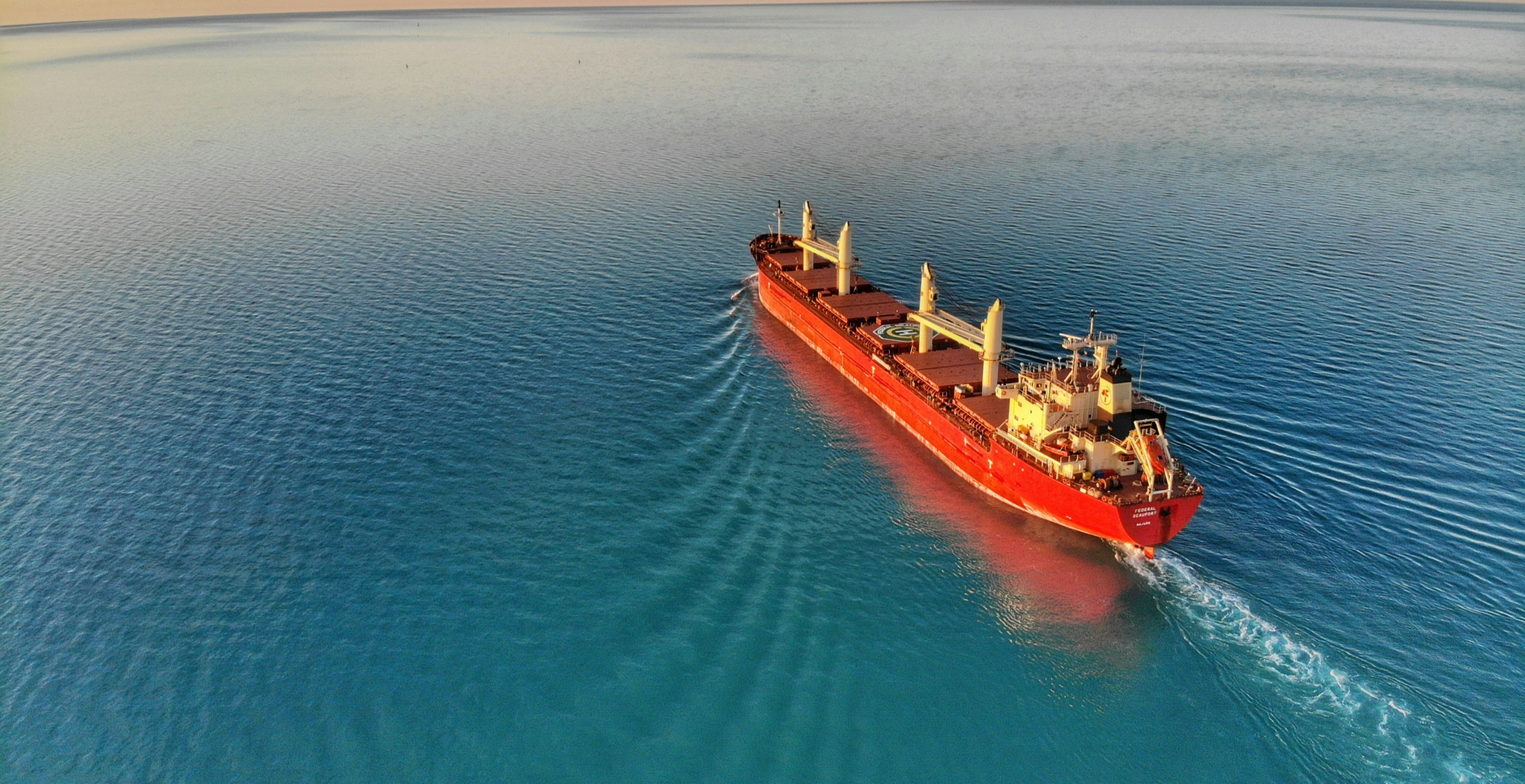
China’s maritime and shipbuilding sectors are now undergoing structural adjustment, steadily advancing toward intelligence, digitalisation and integration with international standards. Proactive equipment maintenance and testing services that meet global standards reduce operating costs and enhance industry competitiveness.
Modern Inspection Instruments for Marine & Ship Maintenance
JRONT test equipment for the maritime and shipbuilding sector:
Modern inspection instruments are widely used in marine and ship maintenance, covering everything from vessel surveys to upkeep. They boost efficiency and safety while supporting environmental protection and energy savings.
Equipment reliability is critical for long sea voyages. A failure at sea can cause severe economic loss and endanger crew life.
Main engines, pumps, fans, compressors, generators, loading/unloading and conveyor systems, helideck friction testing
For further information or inquiries, please feel free to contact us at any time
— we are always happy to provide assistance.
Contact us: +86(10)83659992、13901388706、13910312910
Services
1. Helideck surface friction-coefficient testing.
2. Helideck inspections, safety-net inspections, refuelling-system checks and full CAP 437 compliant test reports.
3. Bolt-preload testing services.
4. Wire-rope non-destructive testing.
5. Helideck friction-tester rental and related equipment sales.
6. Tailored maintenance & inspection solutions aligned with Industry 4.0.
For further information or inquiries, please feel free to contact us at any time
— we are always happy to provide assistance.
Contact us: +86(10)83659992、13901388706、13910312910

 ENGLISH
ENGLISH

